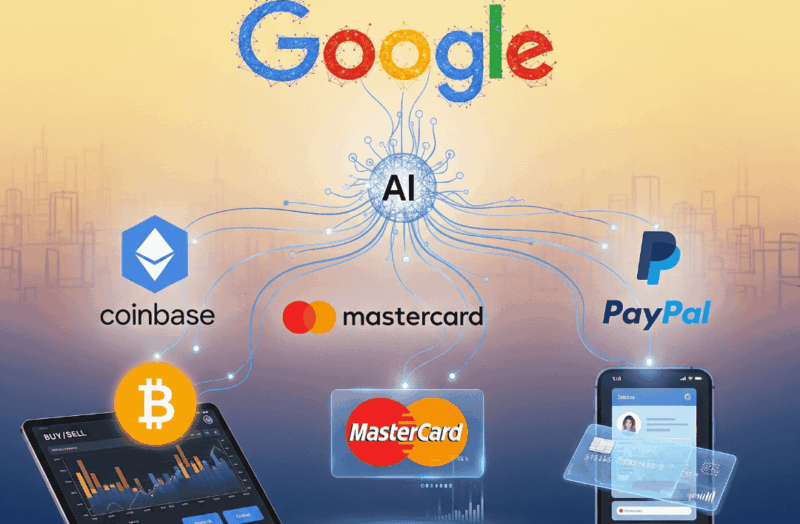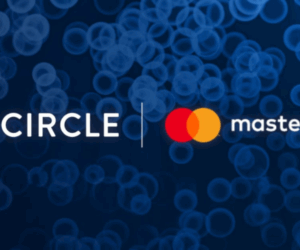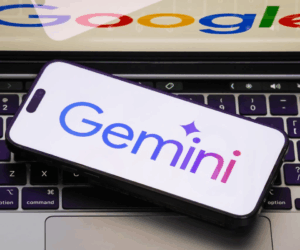Google has unveiled a bold new framework that could redefine how money moves in the age of artificial intelligence. The Agent Payments Protocol (AP2), announced on Tuesday, 16 September 2025, is an open standard designed to let AI agents make purchases on behalf of people securely, transparently, and across both traditional and crypto payment rails.
Google says that AP2 is open and shared. It lets agents prove they were given permission to act. It ensures the requests agents send reflect what users truly intend.

It also builds in accountability, a traceable audit trail in case something goes wrong. Stavan Parikh and Rao Surapaneni, VPs at Google, describe it as a protocol built for everyone, evolving through “an open, collaborative process… through standards bodies… inviting the entire payments and technology community to build this future.”
Unlike past experiments in “smart” payments, AP2 has heavyweight backing from across finance and tech. Coinbase, Mastercard, PayPal, American Express, Ant International, Ethereum Foundation, and MetaMask are among more than 60 companies supporting the initiative at launch. For an industry still grappling with how to trust AI when money is involved, that’s no small endorsement.
Finally, AI that can actually pay
So far, most AI assistants have stopped short of spending. They can recommend a product, compare prices, or place something in a cart. But actually authorising a payment? That’s been too risky, both for users and for merchants.
AP2 aims to change that. It provides a universal rulebook for how agents request permission, how transactions are approved, and how accountability is enforced. At the heart of it are “mandates”, cryptographically signed digital contracts that capture what a user intends.
Picture this: you tell an agent to buy a roundtrip ticket to Port Harcourt on WakaNow, but only if it’s under ₦250,000. That instruction becomes an Intent Mandate. When tickets drop, the agent moves to act, but the sale can only go through with a Cart Mandate, a second digital sign-off that proves conditions were met. The result is automation with a paper trail, something regulators and banks have long demanded.


What makes AP2 especially intriguing is the cross-web partnerships. That mix signals a recognition: AI commerce won’t happen on a single payment rail. Some consumers will stick with credit cards, others with PayPal, and some with stablecoins. AP2 doesn’t force a choice. Instead, it ensures agents can transact across them all.
One of the most standout features is x402, an extension that lets AI agents settle payments in stablecoins. Coinbase has already described it as “production-ready”. For global commerce, where cross-border fees and settlement delays remain a headache, that’s potentially transformative.
Why Google’s AI commerce with Agent Payments Protocol is a big deal
The implications of AP2 stretch well beyond checkout pages. If adopted widely, it could give rise to a new class of autonomous agents trusted to manage purchases, negotiate contracts, or even handle procurement inside companies.
For consumers, the vision is an AI assistant that doesn’t just suggest but executes. It could restock your groceries, renew your subscriptions, or grab your favourite items before they sell out, all without breaching the boundaries you set.
For businesses, it could streamline B2B transactions, automate licensing, or enable entirely new subscription and bundling models. The ability to trust an AI agent with money is the missing piece many startups have been waiting for.
Meanwhile, this is not without its challenges. Turning that vision into reality won’t be easy. Regulation is one looming obstacle. Who is liable if an AI agent makes a mistake? Can mandates be enforced in court? And how will consumer protection laws adapt to AI-driven purchases?
There are also practical questions. Users may want agents to act autonomously, but will they be comfortable giving up control over money? Merchants and payment providers, meanwhile, must integrate the new standard into systems already strained by fraud and compliance demands.


And while AP2’s embrace of stablecoins is forward-looking, it also drags the protocol into the murky waters of crypto regulation. In the U.S., Europe, and across Africa especially, lawmakers are still debating how stablecoins should be issued and supervised.
Still, the ambition here is hard to ignore. By publishing AP2 as an open standard and rallying an unusually broad coalition of partners, Google is betting that agent-driven commerce is inevitable and that it can set the ground rules before others do.
If successful, AP2 could be to AI payments what TCP/IP was to the internet: a common language that allows innovation to flourish on top. If it stumbles, it may join a long list of payment protocols that promised transformation but never found mass adoption.
As Pablo Fourez of MasterCard, frames it, AP2 is more than just another payment tool. He sees it shaping the “future of agentic commerce”, while also emphasising that building standards and trust will take time and cooperation.
For now, one thing is clear. With AP2, the era of AI assistants that can actually buy, sell, and pay is no longer hypothetical. It’s here, and Google wants to own the standard that makes it possible.








